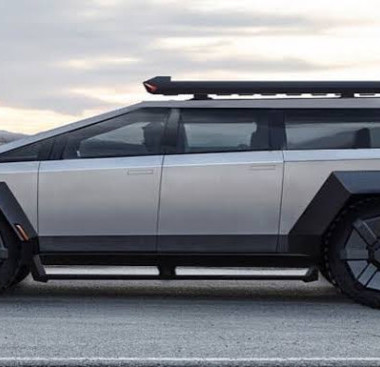Proof That HOW SAFE ARE ELECTRIC CARS? Is Exactly What You Are Looking For
EV stands for an electric vehicle, which is a type of vehicle that is powered by electricity rather than gasoline or diesel fuel. EVs use electric motors and rechargeable batteries to power the vehicle's movement. They are considered to be more environmentally friendly than traditional fossil fuel-powered vehicles since they emit little to no emissions during operation. There are different types of EVs available on the market, including all-electric vehicles (AEVs), which are solely powered by electricity and do not have a gasoline engine, and plug-in hybrid electric vehicles (PHEVs), which have both an electric motor and a gasoline engine that can be used interchangeably.

Electric cars are generally considered safe, with some unique safety features compared to traditional gasoline-powered cars. Here are some reasons why electric cars are considered safe:
- Battery safety: Electric cars are equipped with large batteries that are designed to be safe in a variety of conditions. The battery is protected by a strong and durable casing, and the electrical components are designed to shut off in the event of a collision.
- Low center of gravity: The heavy battery pack in an electric car is usually located under the floor, which gives the car a lower center of gravity. This helps improve stability and reduces the risk of rollover accidents.
- Reduced fire risk: Electric cars are less likely to catch fire than gas-powered cars. This is because electric cars do not have a flammable fuel source, and the battery pack is designed to be safe even in the event of a collision.
- Advanced safety features: Many electric cars are equipped with advanced safety features, such as collision avoidance systems, lane departure warnings, and adaptive cruise control. These features can help prevent accidents and reduce the severity of collisions.
- Regenerative braking: Many electric cars use regenerative braking, which converts the energy that would normally be lost during braking into electrical energy that can be stored in the battery. This not only improves the car's energy efficiency but also provides better control and stability during braking.
- Durability: Electric cars tend to have a simpler and more robust drivetrain than gas-powered cars, with fewer moving parts that can wear out or break down. This can reduce the risk of mechanical failures and improve the car's overall durability and reliability.
- Crash tests: Electric cars undergo the same rigorous crash tests as traditional cars to ensure they meet safety standards. In fact, some electric cars have performed better than their gas-powered counterparts in crash tests.
- Maintenance: Electric cars require less maintenance than gas-powered cars since they have fewer moving parts, no oil changes, and no exhaust system. This can reduce the risk of maintenance-related accidents and also reduce the overall cost of ownership.
In conclusion, electric cars are considered safe and have several advantages over gas-powered cars when it comes to safety. However, it's important to note that like any other type of vehicle, electric cars can still be involved in accidents, and proper driving habits and maintenance are crucial to ensure safe operation on the road.
Next entry: What is the disadvantage of Tesla?
Popular Post









